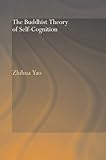The Buddhist theory of self-cognition / Zhihua Yao.
Material type: TextSeries: Routledge critical studies in BuddhismPublication details: London ; New York : Routledge, 2005.Description: 1 online resource (xii, 198 pages)Content type:
TextSeries: Routledge critical studies in BuddhismPublication details: London ; New York : Routledge, 2005.Description: 1 online resource (xii, 198 pages)Content type: - 9781134287468
- 1134287461
- 0203445287
- 9780203445280
- 9781134287413
- 1134287410
- 9781134287451
- 1134287453
- 1283605686
- 9781283605687
- 9786613918130
- 661391813X
- Knowledge, Theory of (Buddhism)
- Self-perception -- Religious aspects -- Buddhism
- Buddhism -- Doctrines
- Théorie de la connaissance (Bouddhisme)
- Perception de soi -- Aspect religieux -- Bouddhisme
- Bouddhisme -- Doctrines
- RELIGION -- Buddhism -- General
- Self-perception -- Religious aspects -- Buddhism
- Buddhism -- Doctrines
- Knowledge, Theory of (Buddhism)
- 294.3/422 22
- BQ4440 .Y36 2005eb
- online - EBSCO
| Item type | Current library | Call number | URL | Status | Notes | Barcode | |
|---|---|---|---|---|---|---|---|
 eBook
eBook
|
Biblioteca "Angelicum" Pont. Univ. S.Tommaso d'Aquino Nuvola online | online - EBSCO (Browse shelf(Opens below)) | Online access | Not for loan (Accesso limitato) | Accesso per gli utenti autorizzati / Access for authorized users | (ebsco)482409 |
Browsing Biblioteca "Angelicum" Pont. Univ. S.Tommaso d'Aquino shelves, Shelving location: Nuvola online Close shelf browser (Hides shelf browser)
Includes bibliographical references (pages 165-189) and index.
1. Introduction -- 2. Origin : Mahasamghika -- 3. Refutation : Sarvastivada -- 4. Synthesis : Sautrantika -- 5. Systematization : Yogacara -- 6. Conclusion.
"This highly original work explores the concept of self-awareness or self-consciousness in Buddhist thought. This work is the first to study systematically the Buddhist theory of self-cognition with an emphasis on its pre-Dignaga development. Its central thesis is that the Buddhist theory of self-cognition originated in a soteriological discussion of omniscience among the Mahasamghikas, and then evolved into a topic of epistemological inquiry among the Yogacarins. To illustrate this central theme, the author draws on a large body of primary sources in Chinese, Pali, Sanskrit and Tibetan, most of which are being presented to an English readership for the first time. This work makes available important resources for the study of the Buddhist philosophy of mind."--Jacket
Print version record.
English.









